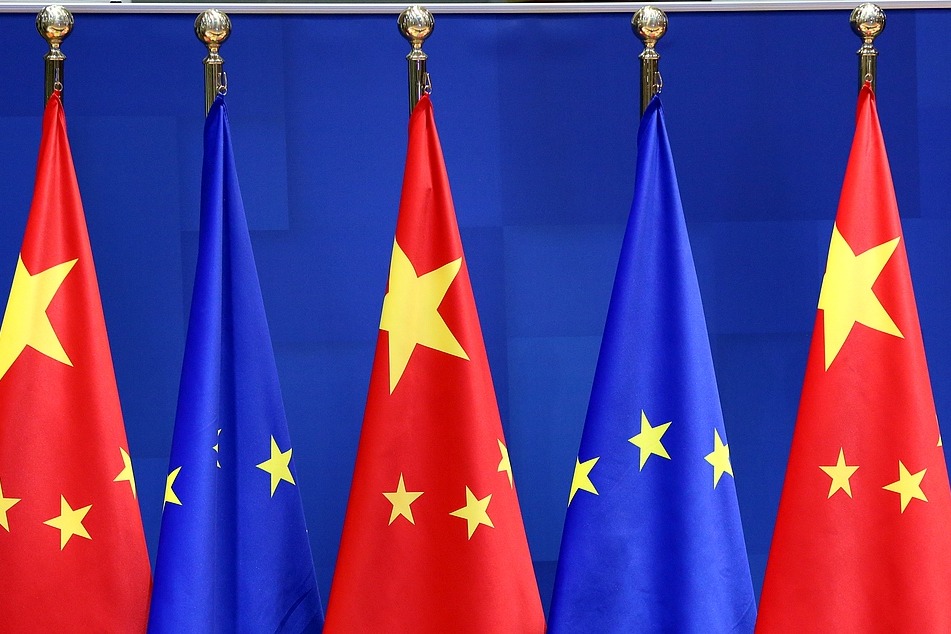Britain urged to stay friendly with China

Academic says it is not in nation's best interest to have prejudices, intolerance
It is not in the best interests of the United Kingdom to have a foreign policy toward China based on "strong ideology with a limited regard to facts and an active dislike of communism and internationalism", supported by the right wingers in the United States and centrist politicians in Britain, says a leading professor emeritus from Oxford University.
Robert Walker is an emeritus fellow at Green Templeton College, who is now a professor at Beijing Normal University.
"There is evidence that many British politicians believe that the Westminster way of doing things is superior to that done elsewhere," he said, "that anything that smacks of communism is an existential threat to 'Western values', with all proponents of communism presumed to be actively intent on destroying the capitalist system.
"There is a great deal of ignorance about China," he continued, adding that Britain desperately needs strong trading relations with China in the wake of Brexit, but that this has been ambushed by US political, security, and commercial interests.
"(US President Donald) Trump has also fuelled a discourse that China is expansionist, wishes to undermine Western interests, and to destroy capitalism and, with it, the American way of life," Walker said. "While Britain remains as dependent on the US as it currently is, economically, ideologically, and militarily, its trade and foreign policy always carries the US thumbprint."
Having enjoyed a career as a public official, researcher and academic in Britain, since retiring from Oxford Walker works as a professor in Beijing, collaborating with Chinese scholars and others to undertake research on social issues and public policy in China, and to disseminate the results nationally and internationally.
Living in Beijing, Walker said he has learned a little about Chinese culture, but more about his ignorance of his own Western culture and wrongheaded presumptions about China and Chinese culture.
He noted that most Chinese people he had met and spoken to when doing his research are generally content with the present system.
"They see government making mistakes but continue to trust government. Government is far from deaf. We might call it surveillance. Here, it is seen as government keeping in touch with the people," he said. "There is, to my ears, no demand for Western democracy which is seen as a cultural imposition. This, I admit, has been my biggest surprise."
Since 2015, Sino-UK relations have enjoyed a "golden era" following President Xi Jinping's visit to Britain, but recently the gloss has come off that relationship because of the UK's decision to remove Chinese technology company Huawei from its 5G telecoms infrastructure network.
The UK has further soured relations by suspending an extradition treaty with Hong Kong, in response to China's approval of the National Security Law for the special administrative region.
It is in Britain's interest, he said, to develop positive bilateral relationships with countries such as China and it is only by working together that we can build a better world for all people.
"Whereas Britain in the 20th century saw political and economic power as a zero-sum game, as the US does in the 21st century, China does not. Maybe this is because China is the underdog and does not risk losing the ability to throw its weight around," Walker argued.
While China is a rich culture and is becoming a great power, Britain was a great power and its rich culture enables it to have greater influence than its current standing warrants. Walker said it is self-evident that both countries can contribute much to each other and, through active engagement, better appreciate their shared interests.
"Whatever the political rhetoric, diplomatic, educational, cultural, and business-oriented engagement must increase to identify common concerns, build understanding, strengthen internationalism and to avoid counterproductive conflict," he said.
"This means more exchanges of students, academics, policymakers, and business folks and more international tourism when COVID-19 permits. It means more joint ventures, more international gatherings, more collaborative research. It means more access to cultural resources, and more open access to international learning and opinion, via both mass and social media."
As China is becoming the economic power of 21st century, Walker said: "China's challenge is not to follow the great powers of previous centuries in using its power to accumulate more power with which to dominate others. Instead, it should share its power through engagement with others for, as President Xi says, the benefit of collective human progress."
































